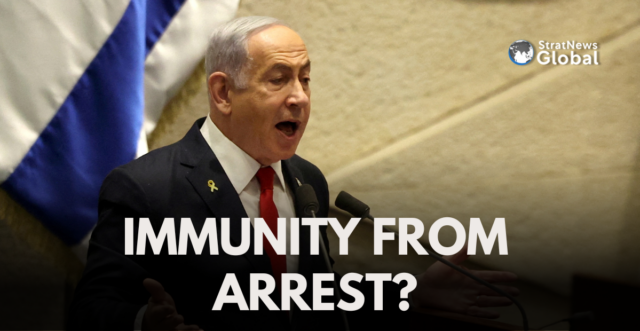France said on Wednesday it believed Israeli Prime Minister Benjamin Netanyahu had immunity to actions by the International Criminal Court which is seeking his arrest for alleged war crimes in Gaza, given Israel has not signed up to the court statutes.
France’s view, issued a day after the announcement of a ceasefire between Israel and Lebanese armed group Hezbollah brokered by the U.S. and France, was condemned by rights groups. Other countries including Italy have also questioned the legality of the mandate.
A statement by the French Foreign Ministry said it would continue to work closely with Netanyahu.
France’s Stance
Paris has taken almost a week to come up with a clear position, after the court in The Hague issued arrest warrants on Nov. 21 for Netanyahu, his former defence chief and a leader of the Hamas Palestinian militant group.
After initially saying it would adhere to the ICC statutes, France’s foreign ministry fine-tuned that in a second statement on Nov. 22 amid concerns that Israel could scupper efforts for a ceasefire in Lebanon. It said that the court’s decision merely formalised an accusation.
On Wednesday, the ministry pointed out that the Rome Statute that established the ICC provided that a country cannot be required to act in a manner incompatible with its obligations “with respect to the immunities of States not party to the ICC”.
“Such immunities apply to Prime Minister Netanyahu and other relevant ministers and will have to be taken into consideration should the ICC request their arrest and surrender.”
Historic Friendship
The French ministry statement, referring to what it called the historic friendship between two democracies committed to the rule of law, said France intended to continue to work closely with Netanyahu and other Israeli authorities “to achieve peace and security for all in the Middle East.”
Rights groups suggested France had tempered its response in order to maintain a working relationship with Netanyahu and his government.
“Some shocking nonsense from France here. No one gets immunity from an ICC arrest warrant because they’re in office – not Netanyahu, not Putin, no one,” Andrew Stroehlein, European media director at Human Rights Watch said on X.
He pointed to article 27 of the Rome Statute on the ‘irrelevance of official capacity.’
Amnesty called France’s position “deeply problematic”.
“Rather than inferring that ICC indictees may enjoy immunity, France should expressly confirm its acceptance of the unequivocal legal duty under the Rome Statute to carry out arrest warrants.”
(with inputs for Reuters)





